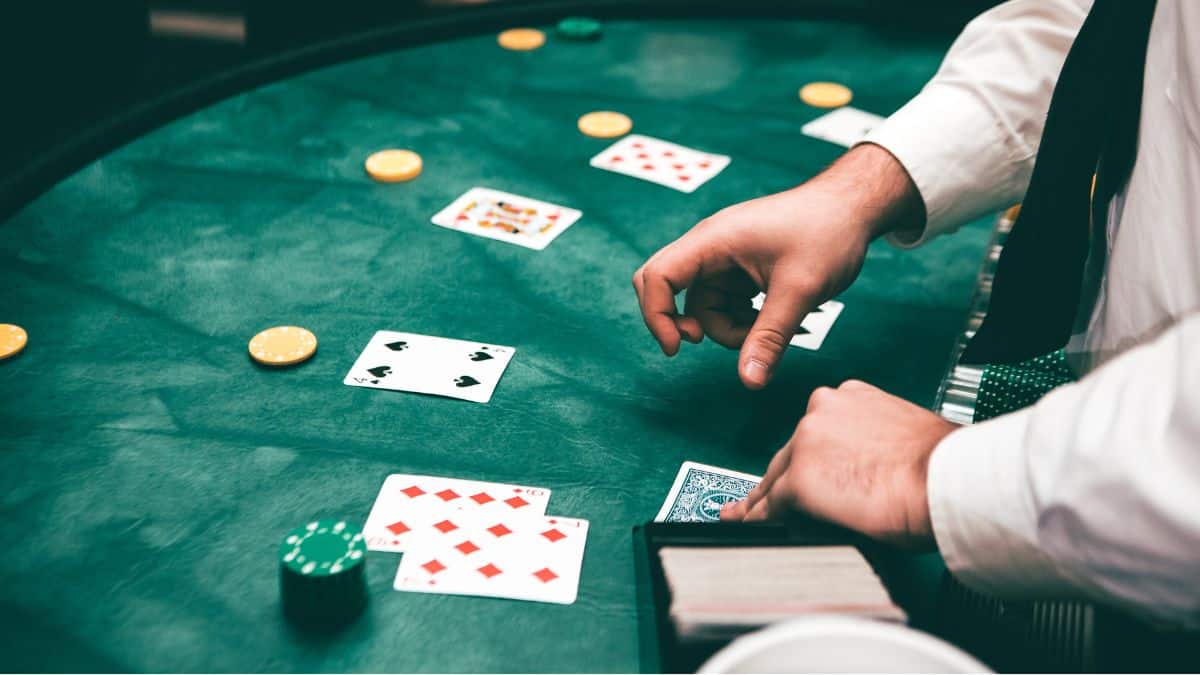The exciting card game of poker, which has been played for centuries, provides enjoyment and a number of unexpected advantages. Poker can improve a variety of facets of your life, whether you play socially with friends or competitively professionally. Players engage in an exciting poker sequence that tests their skills and pushes the limits of their cognitive power in the intriguing world of poker, where strategic thinking and clever decision-making reign supreme. However, there is a world of advantages that go well beyond the poker table, beyond the thrill of each hand dealt and the eagerness for the next move.
This article will discuss the benefits of playing poker and how it can enhance your social relationships, strategic thinking, emotional management, and decision-making abilities.
Improved Decision-Making Capabilities
The skill of making decisions is at the core of poker. Players must assess their cards, weigh the odds, and make thoughtful decisions with each hand dealt in order to maximize their chances of winning. By requiring players to consider the advantages and disadvantages of every option, the game promotes critical thinking. This feature of poker teaches players how to reason critically and make wise decisions under duress, abilities useful in various real-life situations.
Thinking strategically and being adaptable
Poker is a strategy-based game as well as a game of chance. Players must carefully analyze the maneuvers of their rivals, decipher their behavior, and modify their own strategies in response. Poker allows players to hone their strategic thinking abilities, learn to predict their opponents’ next actions, and create successful counterstrategies. Both on and off the poker table, having the capacity for strategic thought and flexibility under pressure is extremely valuable.
Evaluation of probabilities and risk
In order to win at poker, players must constantly assess their risks and possibilities. In order to win, players must assess the power of their hand, take into account the possible card combinations held by their rivals, and calculate the possibility of victory. This ability to weigh risks and probabilities can be used in a variety of real-world circumstances. The capacity to assess risks and probabilities can significantly enhance decision-making in a variety of contexts, including financial investing, career decision-making, and even personal problems.
Increasing Mathematical Competence
In poker, math is very important. To make wise choices, players must compute odds, probabilities, pot odds, and expected values. People naturally improve their mathematical abilities by playing poker. The game improves players’ capacity for statistical analysis, probability estimation, and mental maths. These mathematical skills can be useful in a variety of industries, including business, finance, and even ordinary problem-solving.
Social Networking and Interaction
Poker is a game that encourages social interaction and networking by bringing people together. Players converse, establish rapport, and forge enduring bonds whether they play poker in a casino, at home with friends, or in online poker clubs. The game offers a venue for promoting social interaction, encouraging teamwork, and enhancing communication abilities. The opportunity to interact with people from different backgrounds and build a diverse network of people with similar interests is another benefit of poker groups and tournaments.
Enhanced Patience and Willpower
Poker is an endurance and patience challenge. The game frequently requires players to put up with terrible luck or unfavorable circumstances. Successful athletes are aware of the value of remaining calm under pressure, being patient, and enduring. Poker encourages players to overcome failures, take responsibility for their actions, and keep their attention on the big picture. Poker can help you develop patience and resilience, two traits that you can use in a variety of personal and professional situations.
Parametric Reasoning and Analytical Thinking
Analytical thinking and probabilistic reasoning are necessary for playing poker. The strength of their own hand, the possible combinations of their opponent’s hands, and the possibility of particular outcomes are all factors that players must consider at once. Poker helps people hone their analytical abilities by teaching them to dissect big issues into simpler ones and come to thoughtful conclusions based on the evidence. In disciplines like physics, engineering, and problem-solving in general, this analytical attitude can be quite helpful.
Poker is much more than just a simple card game. It offers a wide range of advantages that can improve a person’s life in many different ways. Poker play improves judgment and problem-solving abilities, fosters adaptability and strategic thinking, cultivates emotional control and self-control, enhances risk assessment and probability analysis, fosters mathematical proficiency, promotes social interaction and networking, and cultivates patience and resilience. Learning how to play poker provides doors to a world of options where decision-making, adaptability, and mathematical aptitude converge, regardless of your level of experience. Therefore, when you learn how to play poker and grasp its nuances, embrace the challenge, investigate the game’s complexities, and learn about the amazing benefits that are in store for you.
Therefore, keep this in mind the next time you play poker with your friends or take part in a poker tournament: you are not simply playing a game; you are also investing in your personal development and developing abilities that can benefit you in many areas of your life.

